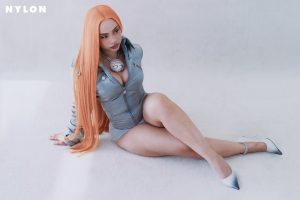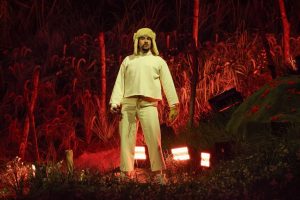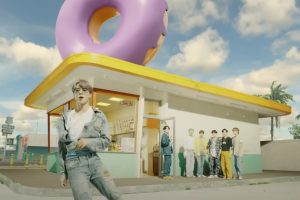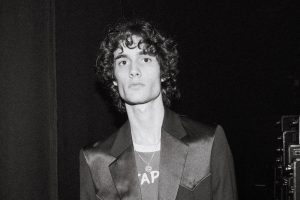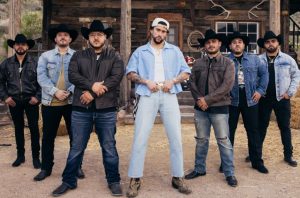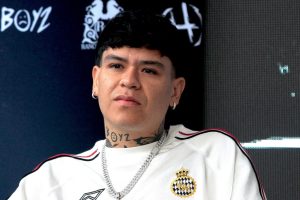When Noah Lennox took his critically acclaimed fifth solo album as Panda Bear, Sinister Grift, on tour ahead of its February release, he brought along a newly formed live band. While Lennox made Sinister Grift largely on his own — with co-production courtesy of his Animal Collective bandmate Josh Dibb, also known as Deakin — he recruited four additional collaborators to bring his songs to life onstage, the first time he had ever done so for a tour of his solo material. Explore See latest videos, charts and news Panda Bear shared the road with Toro y Moi on the first leg of the tour and notably paid a visit to NPR’s Tiny Desk in April. Alongside bassist Tim Koh, keyboardist and vocalist Maria Reis, drummer Tomé Silva and Spirit of the Beehive singer Rivka Ravede on the sampler, Lennox, wielding an electric guitar, alternately floated and ripped through three tracks during the unfiltered NPR performance. The 15-minute set showcased the strength of his eternally youthful voice, and the remarkable cohesion among the players, who had been together for less than a year. “I thought about doing a band thing, kind of off and on for a long time,” says Lennox. “I wanted people in the city or close by so we could really just rehearse a lot.” Much like his work with 2000s noise-pop darlings Animal Collective, Lennox’s solo music does not shy away from experimentation. But Sinister Grift, released on Domino Records, streamlined the delivery with stronger melodic payoffs. The lyrics, though at times intentionally lacking in detail, clearly showed an artist wading through life’s murkier stretches — which for Lennox, 47, included a divorce. “I’m seeing things in [the music] that maybe I wasn’t even aware of when it was coming out, you know?” Lennox says. Ahead of the start of his second tour leg of the year, which kicks off Sept. 15, we caught up with Lennox over Zoom from his home in Lisbon, where he has lived since 2004, to discuss his album themes, his plans with Animal Collective, and how your kids will never really think you’re cool (even if you are). You moved to New York around 2000 but moved to Lisbon in 2004. Do you get back to New York much? We were there in February or March or so, just for a day or two. It’s super, super different. Here too. I feel like I saw Williamsburg do the thing, and then I saw Lisbon do the thing, maybe 10 years later. Would you say you’re from Baltimore? I was born in Virginia, and then my family went back and forth between Baltimore and Virginia, and then I was in high school outside of Philadelphia, and then back to Baltimore for a year, and then Boston for a couple years going to school, but I didn’t finish. And kind of in the middle of that, I went to New York for the summer, and my friends Dave [Portner, aka Avey Tare] and Brian [Weitz, aka Geologist] from Baltimore were there, and we played music back in Baltimore, and we just sort of didn’t look back after that. I also grew up around Baltimore, moved to New York and never went back. New York is tough to beat. It’s a tough place to be without a lot of money, but it’s kind of like, the more money you have, the more you enjoy the city. That’s maybe a horrible thing to say. That’s 100 percent correct. I also added a kid to the mix, which kind of drives home the point even more. Yeah, it changes the calculus a bit. You have two kids, right? My daughter is 20 and my son is 15. Your daughter recited some of her original poetry for Sinister Grift’s “Anywhere but Here,” but I read that she didn’t want to listen to the finished product at the time. Has she listened to the song yet? Not that I know of. She always said she didn’t want to. So… It’s funny that even when your dad is a super cool musician guy, there’s still sort of that funny friction with your kid, who’s like, “Yeah, I don’t want to, I don’t want to listen.” I don’t see myself that way. But I can assure you, they definitely don’t see me that way. It’s OK. It keeps you humble. But yeah, she took it really seriously. She approached it very professionally, I thought. She’s just not really interested in the music thing. I also had to laugh when listening to the song “Praise,” where you sing about trying to get your son to pick up the phone. Yeah, that’s where the first line comes from. It started as kind of a song where I was just sort of thinking about the dynamic between my son and I back then, [and it] kind of grew into noticing that there’s this sort of force that drives the relationship as a parent where, no matter what they do or how frustrating they can be sometimes, there’s always sort of this underlying thing that drives how you how you feel about the kid and connect with them. I guess it’s a song about unconditional love, [but it’s a] bit playful about it. There’s the whole “Again and again.” It really ruminates on the frustration of it. You’ve said that Sinister Grift was written at a challenging time in your life. Could you tell me about that? The thing for me was divorce, but it doesn’t come out super explicitly on the thing. You can see there’s pieces of it here and there. There are definitely allusions to it. But out of respect for the thing, I didn’t want to do anything super explicit or super autobiographical, but that kind of thing, it’s going to make its way in there even if you fight against it. But at least half of the songs don’t touch on that situation. How do you decide when you’re


